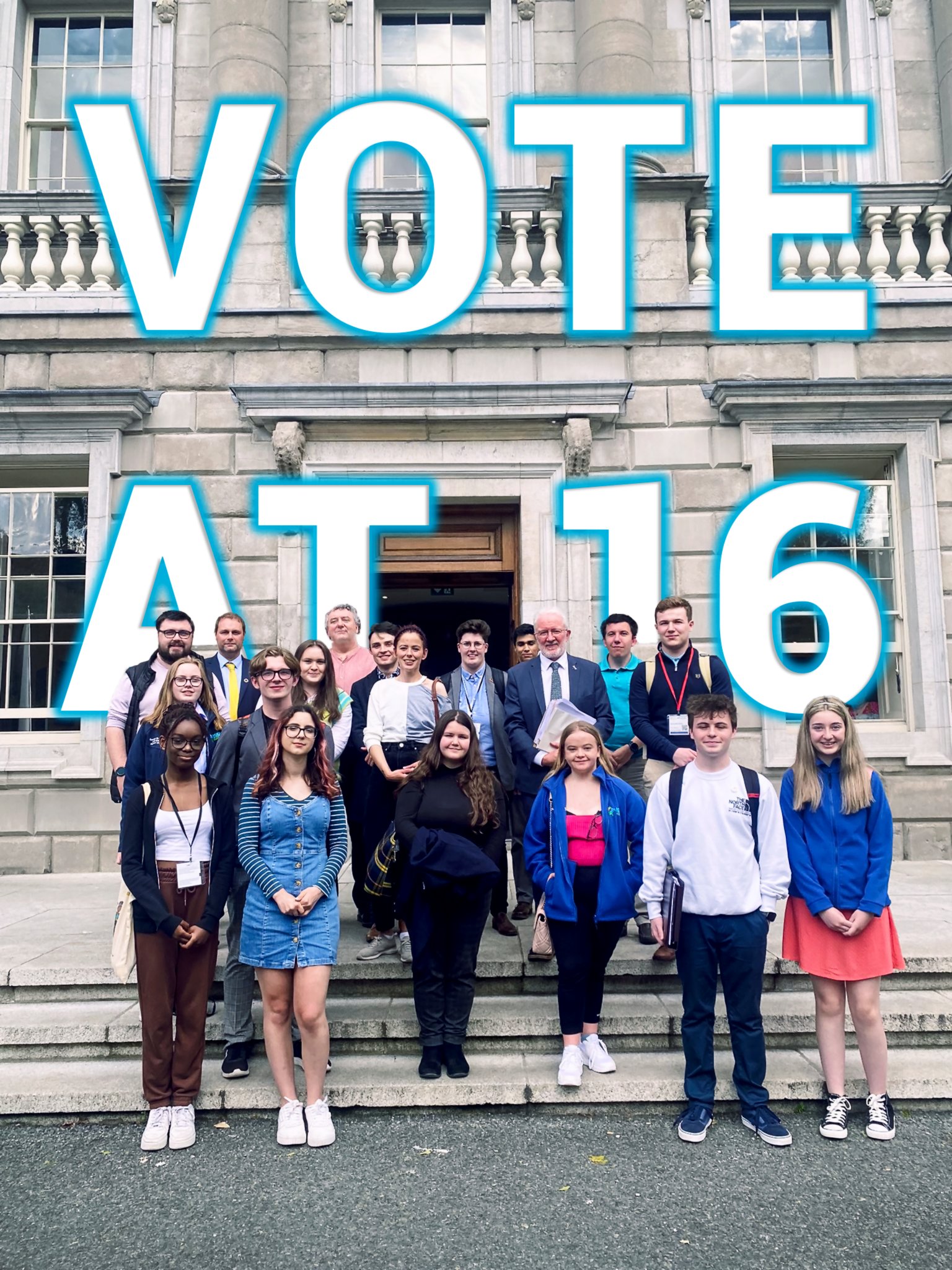- Pringle: We need a policy that recognises the importance of inshore fishing
- Pringle: Disabled people and carers face crisis of State neglect
- Pringle: Failed FF/FG housing policies forcing people to put their lives on hold
- Pringle welcomes Donegal council motion on Occupied Territories Bill: ‘We cannot stand by in the face of genocide’
Pringle: No need to delay second reading on bill to reduce voting age to 16
- Updated: 24th June 2022

Independent TD for Donegal, Thomas Pringle, said he was disappointed with the Government’s decision to delay for a year a second reading on his bill to lower the voting age to 16.
Deputy Pringle said: “The debate and discussion that the Government said they wanted on this issue could have taken place as the bill made its way through committee and the Dáil. Now it would be a year before that process even starts.” The bill proposes a referendum to lower the voting age to 16.
During a Dáil debate on Thursday, Minister Malcolm Noonan said the Government wanted to delay the second reading of Deputy Pringle’s bill, the Thirty-ninth Amendment of the Constitution (Right to Vote at 16) Bill 2021, until June 2023, to allow time to complete their electoral reform commitments, including establishment of an electoral commission.
Speaking on the bill earlier in the debate, Deputy Pringle said: “Young people breathe life to tired issues and we desperately need their contribution to strengthen the politics and policies in this country.”
In his remarks, Deputy Pringle thanked the students of St Catherine’s Vocational School in Killybegs, who have been following and contributing to the bill since he introduced it last May. Students from the school came to Leinster House last month.
The deputy said: “We further discussed lowering the voting age and what this bill would mean if enacted. And that is essentially what is at the heart of this bill. It’s listening to young people and giving them a voice to express their views, should they want to.”
The deputy also thanked the National Youth Council of Ireland, which has campaigned for voting rights for 16 and 17-year-olds since 2009, and the Irish Second-Level Students’ Union. Both had members in the Dáil viewing gallery for the debate.
Deputy Pringle said: “They are the faces behind the campaigning and it’s great to see so many young people take an interest in this issue. It completely disproves the point that young people aren’t interested in politics.”
The deputy said: “Sixteen is the age that young people gain many rights and responsibilities in society. For example, they can leave school, seek full-time employment, be liable for tax, learn to drive, consent to medical procedures, get a dog licence and join the youth sections of political parties. They can have all these societal responsibilities but no say on how their society is run.”
Voting has been extended to 16 and 17-year-olds with positive results in other jurisdictions, including Austria, Scotland and Malta, he said.
Deputy Pringle said: “There is no reason why we couldn’t follow suit. A number of EU countries also allow voting at 16 for European elections. The European Parliament has endorsed a report calling for the voting age for European elections to be set at 16.”
He said the Constitutional Convention agreed that it was preferable to extend the right to vote to 16 and the Citizens’ Assembly also voted 80 per cent in favour of reducing the voting age in 2018.
Deputy Pringle said: “I believe this legislation would have a hugely positive impact on rural constituencies, such as my Donegal constituency. At 18, young people move away from home to college, training or work and they then fall through the administrative cracks. Lowering the voting age would massively increase voter participation among the 18 to 25 age group.”
He said: “Most importantly, I strongly believe young people should have a say on issues which will directly affect them and their future. Issues such as climate change need young voices. Only they can understand the urgency as only they will have to live through its impact.” He was also impressed by Loreto Letterkenny students who addressed politicians about mica in Leinster House last week.
Deputy Pringle said: “I believe the right to vote should be extended to 16 and 17-year-olds so that these voices are heard.”



